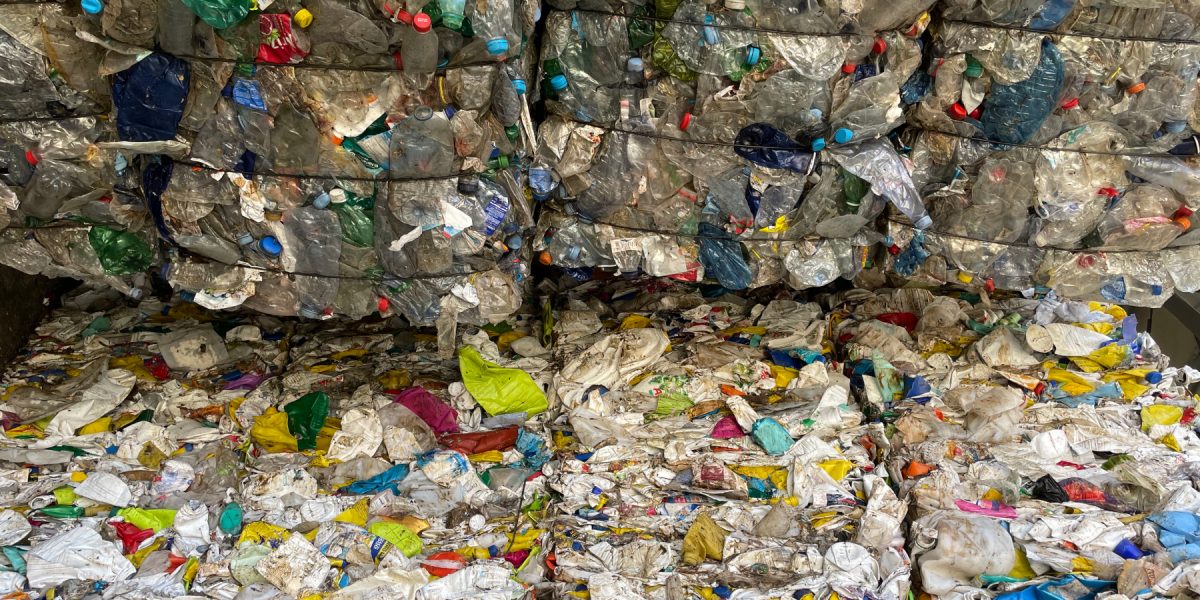Myths of Recycling

While there are significant benefits to recycling if done correctly, recycling is often misrepresented as a complete solution. At the individual level, participating in recycling is commonly thought of as a primary and fundamental way to engage in positive behavior change for our blue planet. The unfortunate truth is that a majority of recyclable materials are not properly recovered and recycled even if you put your waste in the correct collection bins.
There are leakages at every step in the journey outlined above, from the point an item is initially discarded, to the point that it reaches its final destination. Incorrect sorting, contaminated waste, and lack of infrastructure all prevent the true “recovery” of a product. As such the ultimate “recovery rate” of material that is collected, processed, and successfully converted into new feedstock or product is much lower than the “recycling rate” of the recycling stream collected by waste haulers. Greater education, informed policy, and optimized infrastructure is needed to improve both recycling and recovery rates and address issues caused by improper waste management.
We don’t have enough infrastructure!
The ugly truth of recycling is that we currently don’t have enough infrastructure globally to process the amount of material we are creating. Many countries are struggling to sort and recycle their waste due to a lack of infrastructure and often resort to incineration (the burning of waste).
“Australia’s recycling industry is facing a crisis as the country struggles to handle the 1.3 million-ton stockpile of recyclable waste it had previously shipped to China.” – (Yale Environment 360)
“China’s 2018 ban on plastic waste imports exposed the fragility of parts of the U.S. recycling collection and processing system. In some areas, there is no market for collected recyclable plastics due to historical reliance on China for processing.”- (Waste360)
“The UK will not be able to meet its 2035 recycling targets, according to a new report from packaging producer DS Smith in collaboration with Central Saint Martins College, London…Lack of investment in recycling is a key problem identified in the report, which points out that the total amount of money budgeted by councils to spend on recycling services has dropped from £630 million in 2013/14 to £569 million in 2016/17.” – (Resource.co)
“The European Commission unveiled a Plastics Strategy saying that its drive to make all plastic packaging recyclable or reusable by 2030 could create 200,000 jobs but only if recycling capacity was multiplied fourfold. The European Union recycles less than 30 percent of its 25 million tonnes of plastic waste each year..” – (UNEP)
We are exporting our waste globally!
Many countries were sending their plastic waste to China before China implemented the Green Sword Policy to reject all unwanted shipments of unprocessed material waste. Countries in North America and Europe are still exporting their waste, including hazardous waste, to countries in the global South, including Thailand, Brazil, India, and Indonesia. It is an ethical concern for a country to be producing more waste than they are able to properly manage domestically. Exporting waste and putting the burden of waste management on other countries that may have further limited infrastructure creates public health and human rights concerns that need to be reckoned with.
The Numbers:
Since 1950, only 9% of global plastic production has been adequately recycled, and close to half has ended up in landfills or dumped in the wild. (Geyer et al., Science Advances, 2017)
U.S. recycling levels have not improved in 20 years despite the billions of dollars spent on recycling competitions, symposiums, awareness campaigns, and new sorting technologies. (Rubicon)
The Environmental Protection Agency estimates that about 75% of the waste produced in the US is recyclable; yet the actual recycling rate is only 34%, and the average recycling contamination rate is 25%—1 in every 4items (Rubicon).
38.5 % of waste was landfilled and only 37.9 % was recycled in the EU in 2018. (Ec.Europa.eu)
An estimated 70–80% of the MSW generated in Africa is recyclable, yet only 4% of MSW is currently recycled. (Africa Waste Management Outlook 2018)
Eastern Asia Pacific produces 23% of the world’s waste, the most of any region. Within East Asia, Hong Kong, Singapore, Taiwan and China generate a combined 223 million tons annually. Of these four countries in East Asia, Taiwan is seen as a world leader in recycling and zero waste – going from 5% recycling rate to maintaining a recycling rate of above 50% for the past 10 years! (Earth.org)
